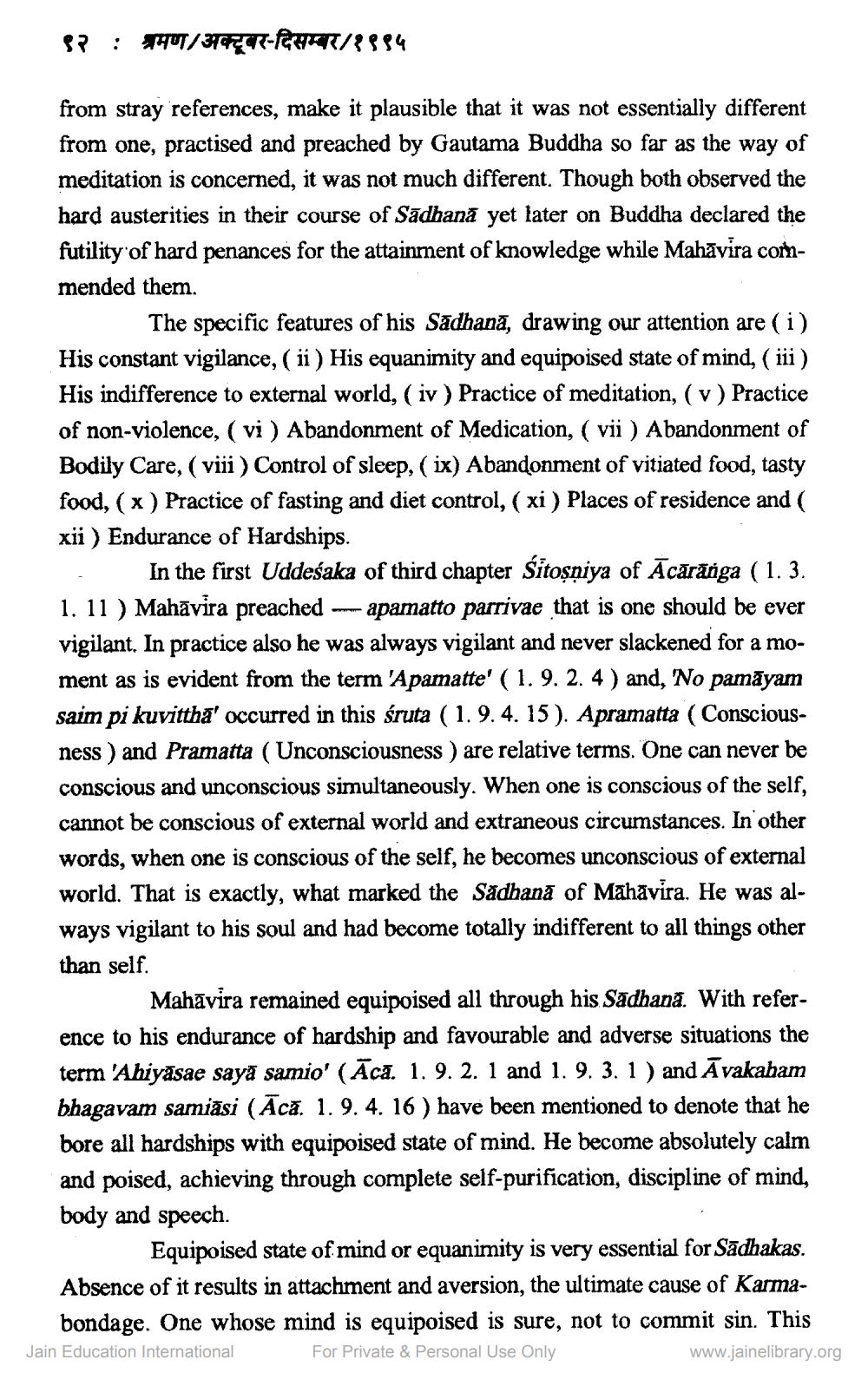________________
87 : 194/35R-HR/3884
from stray references, make it plausible that it was not essentially different from one, practised and preached by Gautama Buddha so far as the way of meditation is concerned, it was not much different. Though both observed the hard austerities in their course of Sādhanā yet later on Buddha declared the futility of hard penances for the attainment of knowledge while Mahāvira commended them.
The specific features of his Sadhana, drawing our attention are (i) His constant vigilance, ( ii ) His equanimity and equipoised state of mind, (iii) His indifference to external world, (iv) Practice of meditation, (v) Practice of non-violence, ( vi ) Abandonment of Medication, ( vii ) Abandonment of Bodily Care, ( viii) Control of sleep, (ix) Abandonment of vitiated food, tasty food, ( x ) Practice of fasting and diet control, ( xi ) Places of residence and ( xii) Endurance of Hardships.
In the first Uddeśaka of third chapter Sitoşniya of Ācārănga (1. 3. 1. 11 ) Mahāvira preached apamatto parrivae that is one should be ever vigilant. In practice also he was always vigilant and never slackened for a moment as is evident from the term 'Apamatte' ( 1. 9. 2. 4 ) and, 'No pamāyam saim pi kuvittha' occurred in this śruta ( 1.9.4.15). Apramatta (Consciousness ) and Pramatta (Unconsciousness ) are relative terms. One can never be conscious and unconscious simultaneously. When one is conscious of the self, cannot be conscious of external world and extraneous circumstances. In other words, when one is conscious of the self, he becomes unconscious of external world. That is exactly, what marked the Sadhanā of Mahāvira. He was always vigilant to his soul and had become totally indifferent to all things other than self.
Mahāvira remained equipoised all through his Sadhana. With reference to his endurance of hardship and favourable and adverse situations the term Ahiyāsae saya samio' (Aca. 1. 9. 2. 1 and 1. 9. 3. 1 ) and Āvakaham bhagavam samiäsi (Acă. 1.9.4. 16 ) have been mentioned to denote that he bore all hardships with equipoised state of mind. He become absolutely calm and poised, achieving through complete self-purification, discipline of mind, body and speech.
Equipoised state of mind or equanimity is very essential for Sādhakas. Absence of it results in attachment and aversion, the ultimate cause of Karma
bondage. One whose mind is equipoised is sure, not to commit sin. This Jain Education International For Private & Personal Use Only
www.jainelibrary.org




